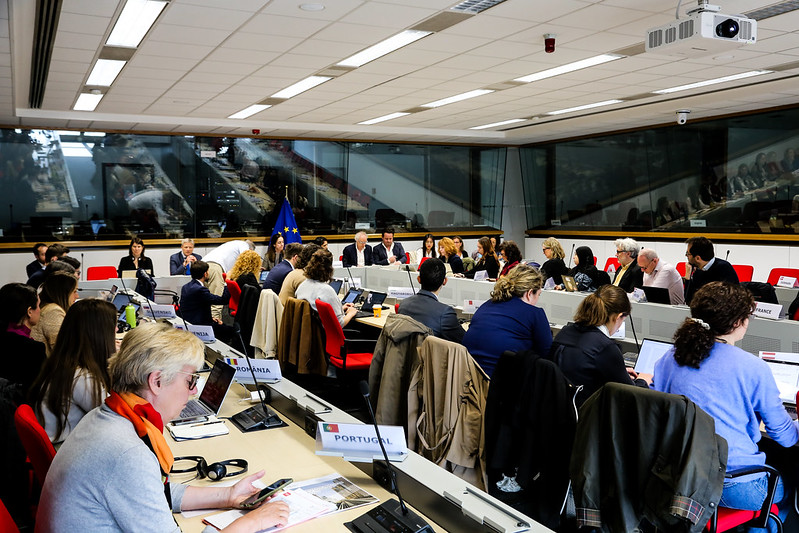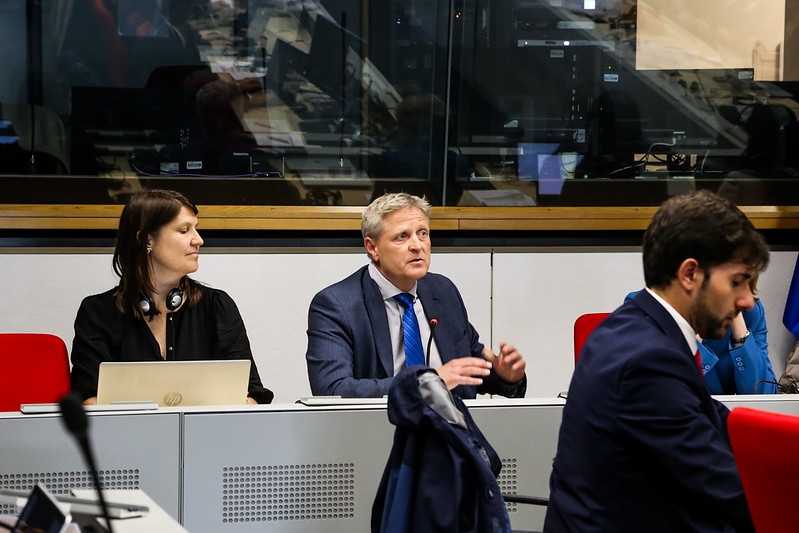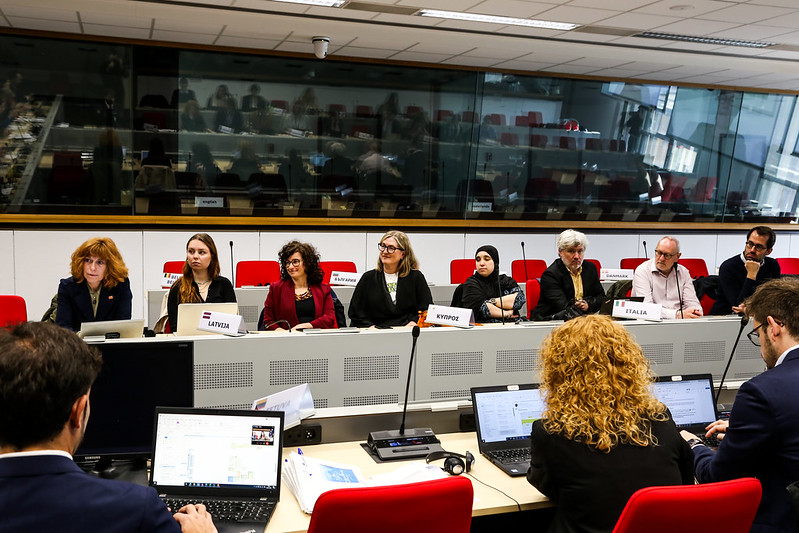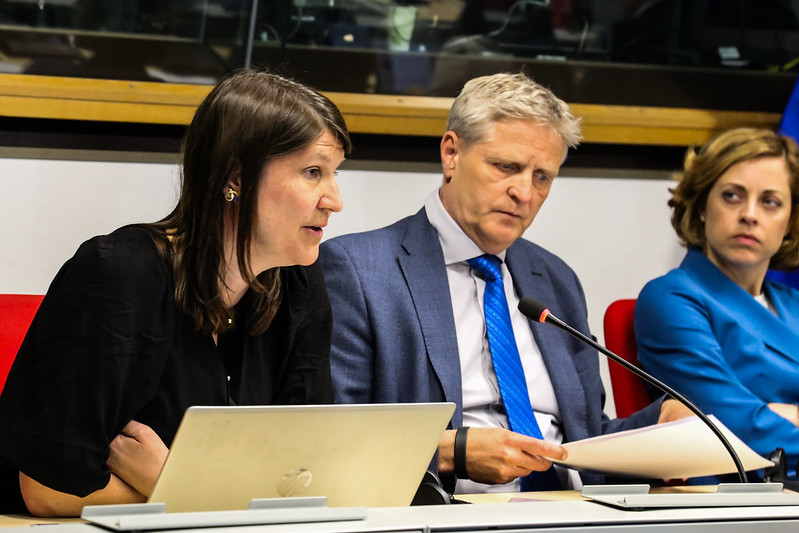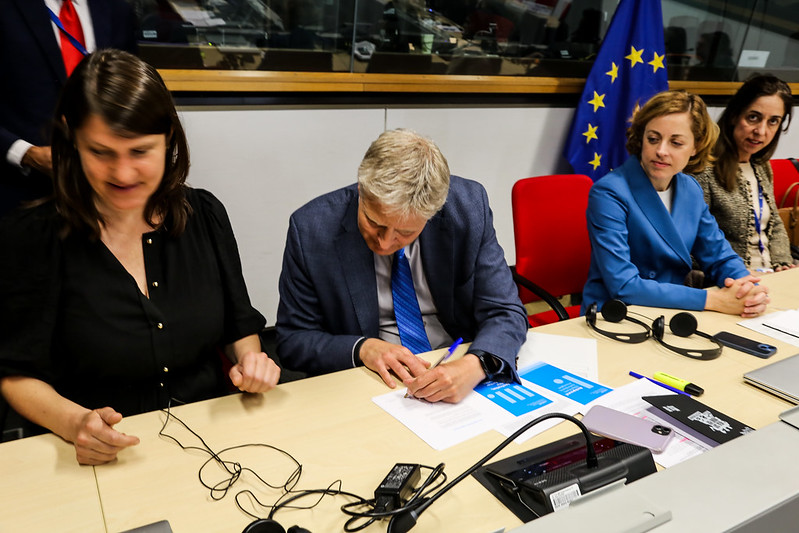.jpeg)

CESI SG Klaus Heeger co-signed the updated European guidelines to protect workers from third party violence and harassment.
Brussels 6 May 2025
The European sectoral social partners for Local and Regional Governments, Hospitals and healthcare, Education, Hotels, restaurants and cafés (Hospitality), and Central Governments adopted the updated European Multi-sectoral Guidelines to Prevent and Tackle Third-Party Violence and Harassment Related to Work. This follows a six-month round of negotiations last year with the financial support of the European Commission.
This significant achievement demonstrates the unwavering commitment of the involved social partners to ensuring safe, inclusive, and respectful workplaces across Europe and providing evidence-based guidance to their members including health and safety representatives at work.
The revised Guidelines draw upon ILO Violence and Harassment Convention (No.190), existing policies, and collective agreements at national level to address pressing challenges in light of increased episodes of third-party violence and harassment at work following the COVID-19 pandemic and a changing world of work.
They offer to the trade unions and employers:
- Key elements for a TPVH policy devised by management and workers’ representatives and trade unions, anchored in social dialogue, occupational safety and health, gender equality and non-discrimination with an intersectional approach.
- Practical tools and measures for health risk assessments – for example psychosocial risks and staffing levels-, prevention, and responses, such as social dialogue, awareness raising, training and clear reporting and complaint procedures.
- Definitions and principles on fostering a culture of respect and zero tolerance to violence and harassment including by learning from previous incidents and cooperating with relevant public authorities.
- Remedies to support victims and hold perpetrators accountable, including support and transparent investigations.
- A joint TPVH website with practical examples of policies and collective agreements
Following the adoption, the signatories will disseminate and promote the implementation of the guidelines among their members at the national level including in future collective agreements.
On behalf of the employers’ delegation:“By concluding these updated guidelines, employers reaffirm their commitment to fostering workplaces where safety and respect are at the core, ensuring that both workers and the services delivered to citizens are protected”, said Fabrizio Rossi, CEMR Secretary General.On behalf of the trade unions’ delegation:“Workers should never fear going to work. Violence, including gender-based violence, should never be normalised and deemed part of any job. By underlining that every workplace should have a TPVH policy and, importantly, be sufficiently staffed and resourced to do the job, the Guidelines will contribute to eradicating what has become a major safety and health risk”, said Jan Willem Goudriaan, EPSU General Secretary.
CESI SG Klaus Heeger said: “Let us use these guidelines not as an end point, but as a living tool for implementation at national and workplace level. Together we can draw the line: let’s end third-party violence and harassment at work, in order to protect those who protect, respect those who serve, care for those who care for citizens.”

Related videos
Similar Posts


Building future-ready civil protection workplaces in Athens
At CESI’s eQualPRO event in Athens, stakeholders exchanged on how digitalisation and artificial intelligence are transforming civil protection services and how social dialogue can help ensure fair, inclusive and future-ready workplaces.
Get in touch
with us
Confédération Européenne des Syndicats Indépendants (CESI)
Contact form
Stay up to date
Don’t miss a thing and subscribe to our newsletter
Subscribe now and receive newsletters and much more!



.jpeg)

